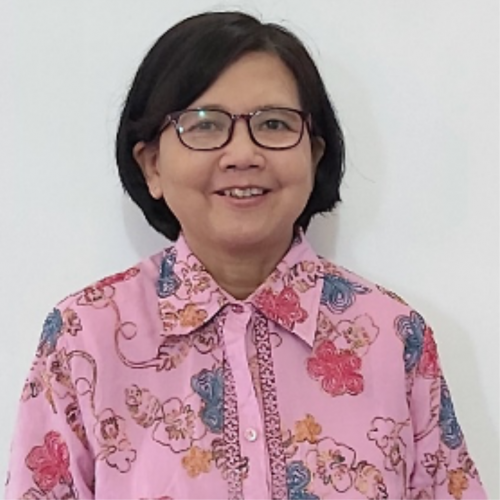
Khin May Tun Chit
My message to colleagues around the world: Try to make use of challenging times in positive ways, so that we can increase our resilience|
Country: Myanmar |
|
If you could send one positive message to children and families/caregivers around the globe at these challenging times, what would it be? I would tell my colleagues around the globe to use these challenging times in positive ways. We can see it as a time to increase our resilience for our families, relatives, friends, teachers, colleagues, clients, societies, and the collective. If you could send one positive message to your colleagues around the globe at these challenging times, what would it be? We can do it in other ways, such as teleintervention or phone conversation. Such practices can even go further to empower parents. It has already begun in some countries. I believe that renowned ECI experts are developing practices that will effectively meet each child's needs and those of his/her family. The core principles of ECI services will not be changed. As such, children and families/caregivers will receive ECI services sooner or later. Social-emotional support is also considered an ECI service. What are you learning during these times as an individual and a professional? I have learnt how to take precautions to decrease the risks of getting COVID-19. I see COVID-19 as a reminder from nature. I am learning how mother nature stops human beings from destroying natural resources and shows us what non-discrimination is. Most of us are moving so fast that our family lives become compromised. COVID-19 required us to slow down, gave us time to reflect on ourselves, and helped us learn flexibility and adaptability. At the same time, I am deeply sorry for those who passed away because of COVID-19. I see, and I learn different strategies of management of dealing with COVID-19 in other countries. I, however, have stopped watching the statistics regarding cases. Since I am not making decisions regarding the management of COVID-19, knowing the data does not help me with anything except awareness of current data. Instead, I try to spend time on something more meaningful for me. The more meaningful task for me now is to work on ECI issues or personal and professional development, including meditation. I make sure that I follow the government ministries' rules and guidelines; I also encourage my family and friends to follow the rules. As a professional, COVID-19 gave me learning opportunities such as free access to the eHealth Virtual Summit for Pediatric Therapists and "Talk with Me" Webinar series conducted by Summer's Therapy Services. I have taken "Professional Resilience" from the Future Learn, which helps me be more resilient. What would you like people to know and understand about your work during the COVID-19 pandemic? My life is still moving on during the COVID-19 pandemic. I did a training needs assessment in January and made coaching trips to pilot ECI sites in February and March this year. The first positive COVID-19 case was documented on the last day of a coaching trip in Pathein, where we have two ECI pilot sites. I was supposed to make second time coaching trips in May and June. However, I could not make it because we adhered to the "Stay Home" instruction issued by the Ministry of Health and Sports. Therefore, I decided to develop a guidebook of the developmental screening tool. I attended the Training of Trainers for this developmental screening tool conducted by ECI international consultant, Dr. Hollie Hix-Small, an assistant professor from Portland State University. When I finalized it, I interpreted and adapted the Monitoring and Evaluation Tools provided by ECI International Consultant, Dr. Emily Vargas-Baron, Director of RISE Institute. I still have the opportunity to continue to serve the ECI programme in one way or another, although it is different from what I planned. Because of the stay at home order, I also had time to review the inception report (draft) on Country-led Formative Evaluation of The Early Childhood Intervention Service Pilot Programme in Myanmar and give some input.
What concerns you the most now, and what concerns you most for the upcoming period?
My concerns for the upcoming period are related to those mentioned above.
|
